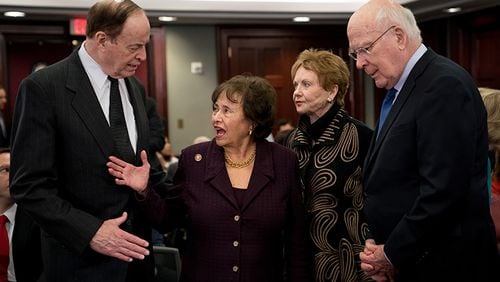Senior lawmakers announced Thursday that they had reached a tentative bipartisan agreement on funding the government for the remainder of the fiscal year, offering a solution to avert a shutdown after weeks of haggling over money for President Donald Trump’s border wall and other matters.
»PREVIOUS COVERAGE: Congress races to avoid 2nd government shutdown of 2019
Rep. Nita Lowey, D-N.Y., and Sen. Richard Shelby, R-Ala., who lead the House and Senate Appropriations committees, jointly announced what they called an “agreement in principle” on the spending measure, along with the ranking minority members of both panels.
“I feel very good that we’ll have a good product that we can vote on on Tuesday,” Lowey told reporters, putting the first vote on the legislation days before funding is set to lapse Dec. 20.
»MORE: A timeline of past government shutdowns
News of the bipartisan funding agreement came as the House Judiciary Committee debated articles of impeachment against Trump and was the latest instance of an odd dynamic that has taken hold on Capitol Hill, where a year-end burst of successful divided government has broken out amid the partisan rancor.
If it holds, the tentative deal would put Congress on track to pass a massive bipartisan spending measure next week around the same time the House is voting to remove the president.
About the Author






